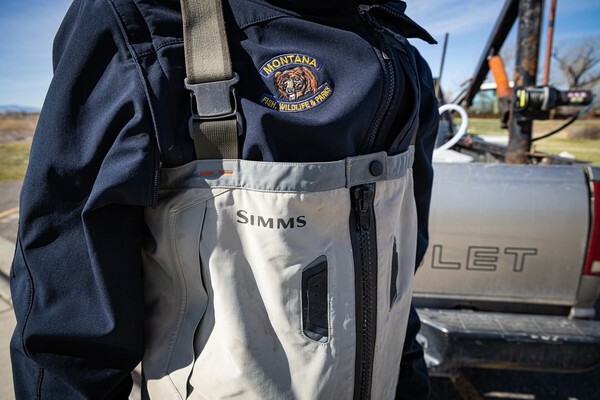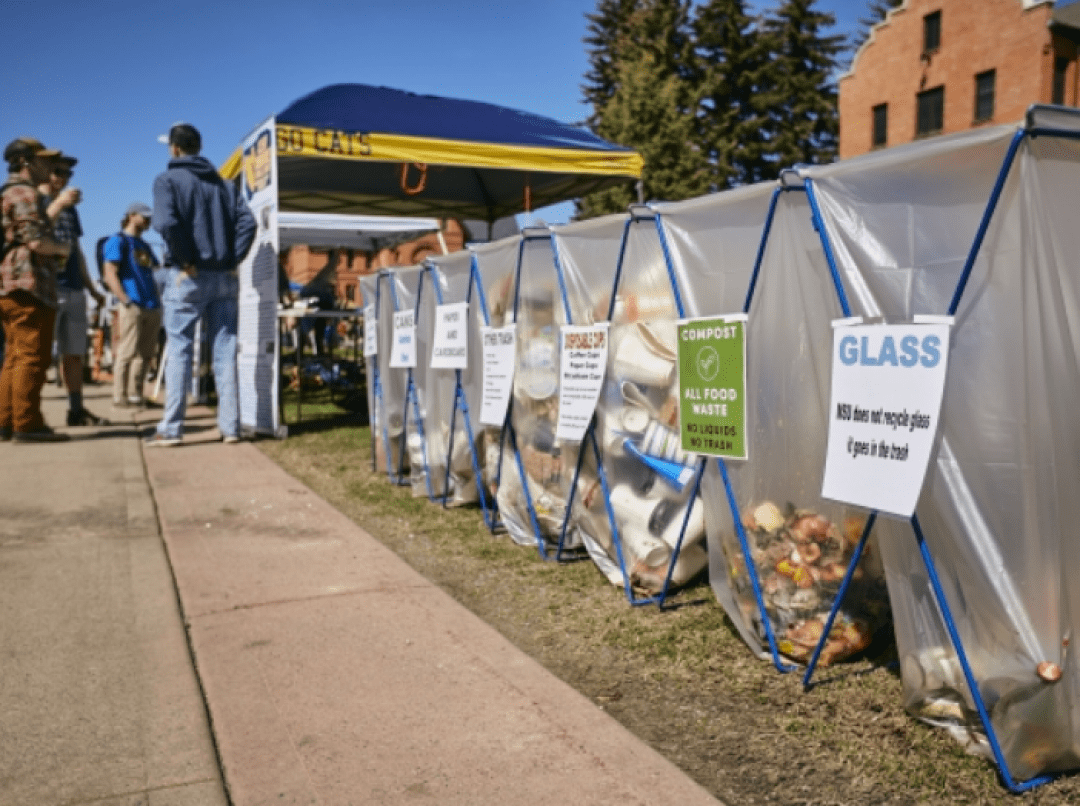Rocky Mountain Bank announced today it will commit $100,000 to support four local community initiatives related to Montana’s COVID-19 crisis. The Billings-based bank will make significant contributions to the Billings Food Bank, HRDC, Flathead Food Bank, and Family Promise of Gallatin Valley. This latest community outreach follows earlier announcements about the bank’s comprehensive COVID-19 response measures centered around financial relief for clients and employee safety.
“This is an unprecedented time for families and businesses across Montana,” expressed Tod Petersen, President and CEO of Rocky Mountain Bank. “Our employees, clients, and community continue to come together to help one another during this crisis. It has reinforced how fortunate we are to live and work in Montana. On behalf of our amazing team at Rocky Mountain Bank, I am proud to support these important community relief efforts.”
As the COVID-19 crisis persists, the demand for emergency meal services, shelter services, and related hardship services continues to surge. Rocky Mountain Bank has focused its contribution to support these growing needs.
Contribution funds will be allocated to the following causes:
$40,000 for Billings Food Bank
Rocky Mountain Bank will contribute $40,000 to the Billings Food Bank. The organization provides more than 14 million pounds of food to local residents needing assistance every year. It also helps distribute blankets, quilts, hygiene kits, student lunches, and other essentials across the region. The nonprofit also operates the Fortin Café & Gift Shop and the Fortin Culinary Training Center. More information is at https://billingsfoodbank.com/.
“The Billings Food Bank is so appreciative of Rocky Mountain Bank’s gift during this unique time in our collective history,” commented Sheryle Shandy, CEO of the Billings Food Bank. “Your faith in us is will be long remembered. Thank you so much.”
$30,000 for HRDC
HRDC will receive $30,000 from Rocky Mountain Bank. The nonprofit operates the Gallatin Valley Food Bank, Big Sky Community Food Bank, and Headwaters Area Food Bank. It also runs Bozeman’s Fork and Spoon, an innovative pay-what-you-can café, and the Warming Center for the Homeless. Additionally, the group leads a series of other initiatives centered on housing, community transportation, senior empowerment, youth development, and more. More information is at http://www.thehrdc.org/.
"While HRDC's mission has not changed, how we meet that mission is constantly evolving in this challenging time,” explained Heather Grenier, president/CEO of HRDC. “This support will enable us to ensure nobody goes to bed hungry, everyone has a safe, warm place to shelter in place and our elderly have the essential items they need to remain safe at home. We continue to be humbled by the generosity of this community and the support for our neighbors in need."
$20,000 for Flathead Food Bank
Rocky Mountain Bank will provide $20,000 to the Flathead Food Bank. The organization provides food services to disadvantaged individuals and families across the Kalispell region. The organization’s key programs include its main Kalispell pantry, mobile pantry service, student backpack lunch program, and its commodity supplemental food program. More information is at http://flatheadfoodbank.org/.
“Thank you Rocky Mountain Bank for this amazing blessing so we can feed not only Flathead County but Northwest Montana and all of those struggling during our global crisis, expressed Jamie Quinn, executive director for Flathead Food Bank. “Your support will help us to get food to children out of school, senior citizens sheltering in place, people laid off during a difficult period in their lives, and so many others.”
$10,000 for Family Promise of Gallatin Valley
Rocky Mountain Bank will contribute $10,000 to Family Promise of Gallatin Valley. The nonprofit works with a large base of local volunteers to provide shelter, meals, job training, and other necessities to bring lasting solutions to families in need. More information is at http://www.familypromisegv.org/.
"Imagine being told to shelter in place and homeschool your children, when you don't have a home to go to,” asked Christel Chvilicek, executive director of Family Promise of Gallatin Valley. “The support from Rocky Mountain Bank during this pandemic will ensure we can continue to support our most at risk population in Gallatin Valley. We can't thank them enough for the support."
Rocky Mountain Bank Part of $1.2 Million Community Outreach Initiative
Heartland Financial USA, Inc., the holding company of Rocky Mountain Bank and 10 other regional banks across the United States, is contributing a total of $1.2 million to COVID-19 community relief programs. The outreach is directed at supporting families and businesses across 12 states impacted by the crisis.
Banking Client Relief Actions
Since the beginning of the crisis, Rocky Mountain Bank has enacted a multitude of programs aimed at providing financial relief for consumer, small business, and commercial clients. As an SBA-certified lender, Rocky Mountain Bank is also working with business clients to utilize available CARES Act funding, such as the Paycheck Protection Program, Emergency Economic Injury Disaster Loans, and other programs. Please visit our COVID-19 resource center on our website for frequent updates.
Keeping Our Employee Team Safe
Rocky Mountain Bank continues to adapt our operations to the evolving environment. This has included having much of our workforce working remotely from home, modifying bank lobby access, restricting employee travel and group meetings, and intensifying the cleaning regiments of all our locations. Rocky Mountain Bank has also implemented a premium pay increase of 20% for its hourly customer-facing bank branch employees and customer service representatives in our call centers. The bank has also committed to cover all COVID-19 related testing and treatment costs for its primary healthcare plan participants.
About Rocky Mountain Bank
Rocky Mountain Bank, a subsidiary of Heartland Financial USA, Inc., (NASDAQ: HTLF), is a state-chartered, community-invested bank with more than $528 million in assets. Headquartered in Billings, Montana, the bank also has offices in Bigfork, Bozeman, Kalispell, Plains, Plentywood, Stevensville and Whitehall. With a focus on business and personal lending, and deposit services, they are dedicated to making Great Things Happen! for their customers. For more information, visit www.rmbank.com. Rocky Mountain Bank is a member of the FDIC and an Equal Housing Lender.
About Heartland Financial USA, Inc.
Heartland Financial USA, Inc. is a diversified financial services company with assets of $13.2 billion. The company provides banking, mortgage, private client, investment and insurance services to individuals and businesses. Heartland currently has 114 banking locations serving 83 communities in Iowa, Illinois, Wisconsin, New Mexico, Arizona, Montana, Colorado, Minnesota, Kansas, Missouri, Texas and California. Additional information about Heartland Financial USA, Inc. is available at www.htlf.com.





News Comments
Thank you
Open Auditions for Annie
Monday, Sep. 16, 2024
I’m at the Bozeman airport where your painting, “Blowing East” is displayed. It’s absolutely gorgeous! Bravo, Marci!!
The Artists’ Gallery in Bozeman’s Emerson Cultural Center May Exhibits
Sunday, Jun. 30, 2024
This is so typical of a sign in, which we should not have to do to check if we or some one in our party got a permit. I have been working or "creating an account" for 30 minutes and just get the same ...
Smith River permit drawing results available
Sunday, Mar. 10, 2024
I have struggled with this podcast and my own participation therein, the event itself obviously traumatic, but beyond that my inability to reach anyone and convey anything resembling truth. The person ...
Billings, MT Case Becomes True Crime Podcast | 'An Absurd Result'
Marktokarski
Saturday, Jan. 20, 2024